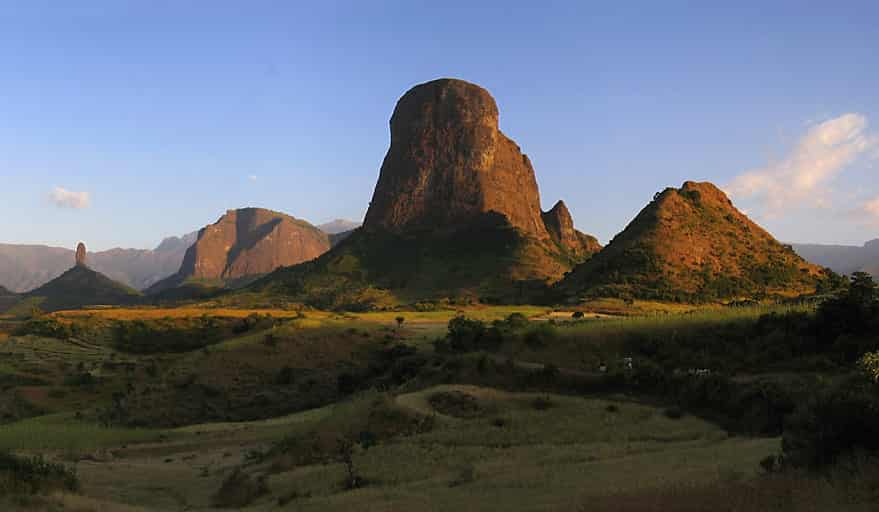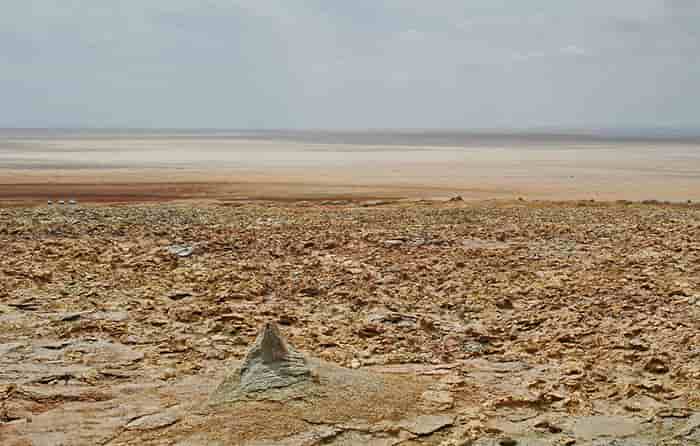Published on : 09 Sep 2014
A LOOK AT EMERGING
OPPORTUNITIES IN ETHIOPIA

 Barren landscapes. Desert-like conditions. Extreme poverty. Owing to extensive media coverage such terms are universally called upon in the characterization of Ethiopia. But pause for one moment here and search online for images of capital city Addis Ababa
Barren landscapes. Desert-like conditions. Extreme poverty. Owing to extensive media coverage such terms are universally called upon in the characterization of Ethiopia. But pause for one moment here and search online for images of capital city Addis Ababa
Was this what you were expecting? The global revival of the financial market, demand for new investment prospects and the strengthening of the country’s economy have, it seems, tipped Ethiopia as an attractive opportunity for foreign investors, and the effects of this have started to become evident. Currently ranked as Africa’s ninth largest economy Ethiopia can also consider itself as the continent’s fastest-growing, with figures from the IMF and the nation’s government suggesting a growth in GDP of between 5 and 10 percent over the past seven years.
So who are these new investors, and what is it about Ethiopia that has caused it to be highlighted as such a potentially rich market? Heineken, US retailer Brown Shoes and British beverage producers Diageo are amongst the list of commercial giants newly established in the region – but why here and why now? Precedents suggest that a country’s natural resources, geographical location, and state of political and economic security all play a part. Despite the vast size and large population of their mother continent, African nations play a very small part in international trade. There is, therefore, an obvious physical gap in the market, and the need for a bridge between South America and Europe and Asia. Situated on the eastern Horn of Africa Ethiopia would, therefore, appear to be an ideal location for an international investor to establish a base. The country is also rich in natural resources, exporting livestock, coffee, and gold. Although it may be argued that current provisions are insufficient to sustain a market-dominating industry the development of Dubai has demonstrated that a country’s natural resources do not necessarily need to be so extensive as to support the economy

–they simply render the region as an attractive opportunity and highlight its potential. And despite its turbulent political history, when considering the current state of affairs in other African nations, Ethiopia may now be described as comparatively stable. The basic requirements of a sensible location for investment are therefore all present.
Given that the nation is a relatively blank business canvas at present any investor interested in partaking would have a variety of options. The government is actively promoting investment in agriculture – a sensible suggestion when considering that the agricultural industry accounts for 42 percent of Ethiopia’s exports and employs 80 percent of its workforce. The obvious risk here is that the nation has found infamy owing to persistent droughts, which dramatically decrease farm production resulting in a significantly reduced GPD and a famished population. Yet securing investment in the agricultural sector may well be a solution with recurring benefits. Despite its reputation for drought Ethiopia is actually known as the “water tower of East Africa” – it has the largest natural water reserves on the continent and is dissected by no less than 14 rivers, including the Nile. A lack of water is not the root issue – the problem is that the country lacks the technology and requisite knowledge that developing an irrigation system would require. Securing investment would allow for such development meaning that the industry could grow to realize its full potential. Industries utilizing the by-products of agriculture, such as leather and textiles, are also tipped for growth. A country expand- ing in terms of economy and commerce will, in turn, attract further business, and such development will require various infrastructures to cater to demand thus enhancing the construction industry. As commercial activity increases an influx of expats is inevitable. This creates the need for services such as hospitals, educational facilities, and general amenities. The tourist industry also looks set to boom, with increased investment in the hospitality sector enticing travelers to the region and boosting the country to the top of the Rough Guide’s “must see” list. The options, it seems, are therefore unlimited.
But potential investors, be aware. Entering into any form of business may not be as easy as the simple incorporation process implies. Information suggests that successful investments are usually the projects of the well-connected and well-established within the region, with the descendants of state officials and families held in high regard by society controlling the major entities. Additionally, further to Proclamation number 769 of 2012, investment in some areas – including telecoms, weapon production, large-scale commercial aviation and certain banking ventures - is reserved for state nationals and the government. Before any non-national can even think about investing an investment license from the Ethiopian Investment Agency is required, which must be renewed annually until operations have started, and an updated status report should be submitted every 6 months. Factor in the strict state regulations regarding land ownership and it is perhaps easy to understand why international investors may be deterred.
 Despite the fact that convention and practice (rather than law) create awkward hurdles for foreign investors the incorporation process will not be entirely unfamiliar to anyone who has obtained the necessary approvals. Pursuant to the Commercial Code of Ethiopia 1960 and the Ethiopian Investment Laws there are 6 choices of entity - sole proprietorships, partnership, general partnerships, limited partnerships, share companies, private limited companies and joint ventures. Obviously the specific registration requirements will depend upon the type of company or investment desired, but in general, the relevant application form, copies of the constitutive documents and passport copies will be needed. It is highly recommended that investors appoint a local agent equipped with a power of attorney to assist – sound inside knowledge is invaluable to the process.
Despite the fact that convention and practice (rather than law) create awkward hurdles for foreign investors the incorporation process will not be entirely unfamiliar to anyone who has obtained the necessary approvals. Pursuant to the Commercial Code of Ethiopia 1960 and the Ethiopian Investment Laws there are 6 choices of entity - sole proprietorships, partnership, general partnerships, limited partnerships, share companies, private limited companies and joint ventures. Obviously the specific registration requirements will depend upon the type of company or investment desired, but in general, the relevant application form, copies of the constitutive documents and passport copies will be needed. It is highly recommended that investors appoint a local agent equipped with a power of attorney to assist – sound inside knowledge is invaluable to the process.
Okay, so the preamble might not be as hassle-free as we would like, but that aside let us sum up – here we have a conveniently-located country, rich in natural resources, with a strengthening economy and the potential for incredible growth. The commercial giants have already taken notice – why not join them, investors?

 English
English
 عربي
عربي Русский
Русский 官话
官话 português
português
 Türk
Türk 



.jpg&w=120&h=80&zc=1)





